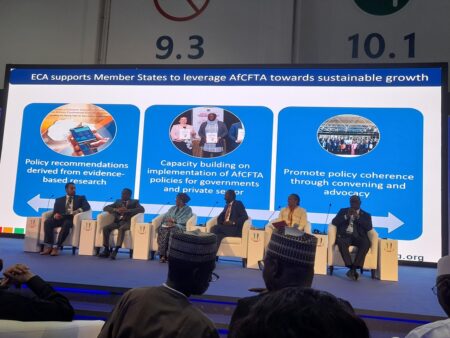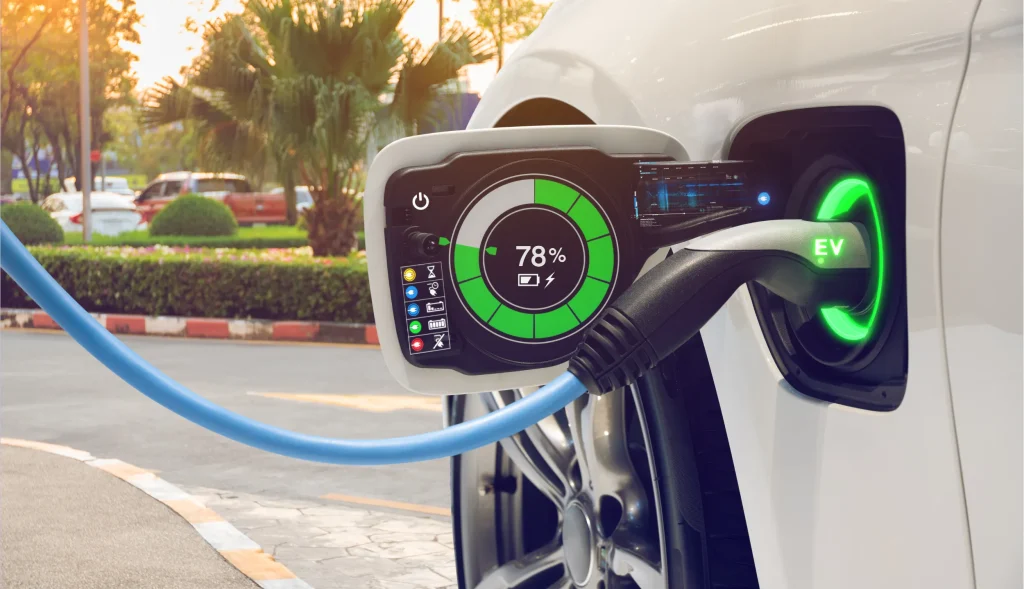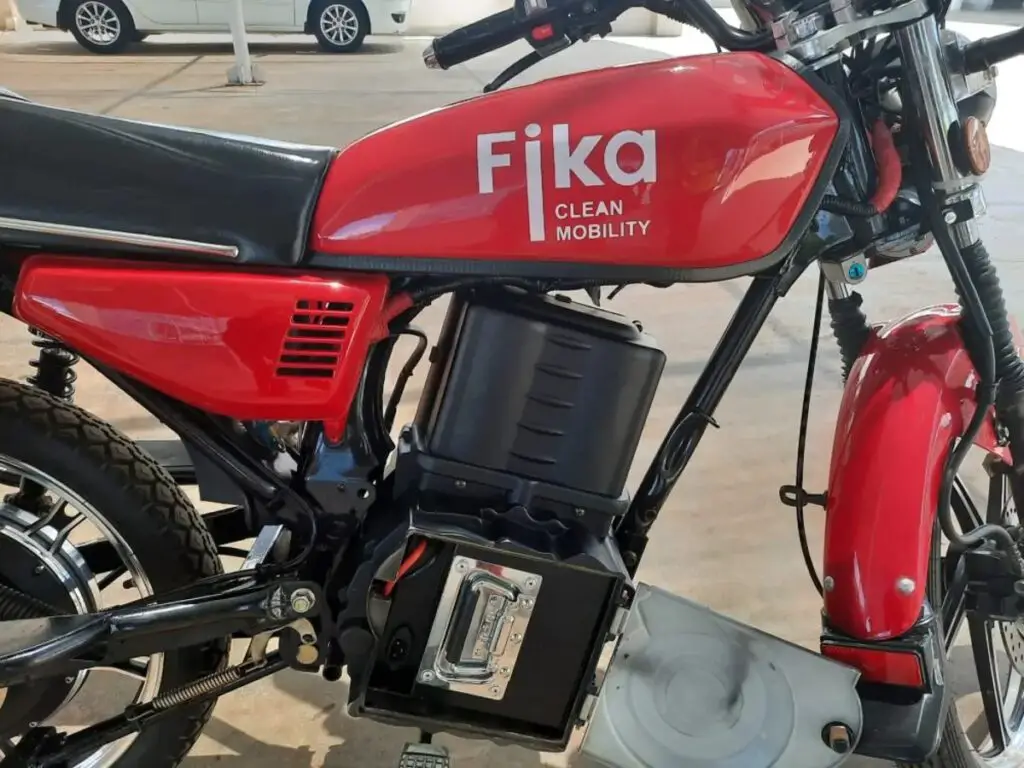- Kenya-Ethiopia Trade Relations: Legislators Advocate for Policy Alignment to Boost Ties
- Visualising the state of debt in Africa 2024
- Abu Dhabi radiates optimism as over 300 startups join AIM Congress 2024
- TLcom Capital Raises $154 million in Funding to Boost Its African Growth
- Africa’s $824Bn debt, resource-backed opaque loans slowing growth — AfDB
- LB Investment brings $1.2 trillion portfolio display to AIM Congress spotlight
- AmCham Summit kicks off, setting course for robust future of US-East Africa trade ties
- Why the UN is raising the red flag on the UK-Rwanda asylum treaty
Browsing: Electric vehicles
- The strategic manoeuvrings of the United States in the DRC’s cobalt mines serve as an international yardstick for how well it can balance economic aspirations with ethical imperatives.
- The DRC has become embroiled in a complicated geopolitical chess game, and it is no longer merely a national asset but a worldwide commodity.
- The strategic importance of cobalt from the Congo to the United States exemplifies the necessity for a multifaceted solution that upholds human dignity in the workplace, safeguards natural resources, and encourages economic resilience.
Conspicuously rising to critical importance on a global scale, cobalt has been overshadowed by the world’s precious metals. Although it is sometimes overlooked in resource talks in favour of its more glamorous cousins, gold and oil, this silvery-blue element—a byproduct of copper and nickel mining—is an essential component of modern technology.
Nevertheless, it is a mineral of the future because it powers electronic devices such …
- By enhancing intra-African trade, AfCFTA estimates that the continent with gain $195 billion by 2045.
- These gains are projected to be mainly realised in industry, services, agrifood, and energy sectors.
- By collaborating under AfCFTA, countries can greatly boost regional supply chains for the global electric vehicles market.
African countries need to embrace a set of reforms critical in driving Africa’s free trade plan, AfCFTA. The call comes even as more African leaders sign the agreement on the African Continental Free Trade Area (AfCFTA).
AfCFTA has the potential to transform regional trade and thereby lift billions of livelihoods in Africa out of poverty. To realise these benefits however African leaders need to go beyond blueprints.
“It is not for lack of blueprints that Africa has not structurally transformed,” United Nations Economic Commission for Africa (UNECA) Secretary-General Antonio Pedro said.
Mr Pedro was speaking at the Africa Regional Forum by UNECA on …
- Kenya has begun preparations to support the transition from fossil fuel-powered vehicles as demand for electric vehicles intensifies.
- Kenya Power has established a liaison office which acts as a one-stop shop to champion the Company’s e- mobility business.
- The company is also in the process of hiring a consultant to guide the development of an E-mobility Network Infrastructure System (ENIS) to pilot the electric vehicle charging stations, both for company use and demonstration purposes.
Kenya has begun preparations to support the transition from fossil fuel-powered vehicles as demand for electric vehicles intensifies.
Speaking during the opening session of Kenya Power inaugural E-mobility Conference Kenya Power’s Ag. Managing Director Geoffrey Muli said the firm has established a liaison office which acts as a one-stop shop to champion the Company’s e- mobility business.
“Through this office, we are working with investors and stakeholders to support the development of the e-mobility ecosystem, which …
- Elon Musk, Tesla, and SpaceX command a cult following from legions of fans worldwide.
- Musk’s fortune tumbled by a staggering 60% in 2022 according to reports by Forbes and Guinness.
- Forbes magazine broke the news that Musk, the Tesla boss was no long the wealthiest person on the planet. He lost this position to Bernard Arnault of LVHM.
The billionaire’s interest in electric car maker lost more than half of its value in 2022 as shares in Tesla lost over 60% according to a report by Forbes which was quickly adopted by Guinness. Amazingly, despite the substantial loss of value of Musk’s Tesla shares he is still the second wealthiest person on the planet.
This is likely attributable to the high valuation that the market still attaches to the electric car manufacturer’s shares. Shares of the EV company began to tumble when investor’s lost confidence in the billionaire’s ability to …
Over-reliance on fossil fuels and current geopolitical tensions have reemphasized the need to rapidly adopt alternative sources of sustainable, reliable and affordable mobility.
As oil prices continue to pump every day, attributed to the intensifying fight against climate change by 2030 and the current war between Russia and Ukraine, the adoption of electric vehicles appears inevitable.
eWAKA EV Mobility is spearheading sustainable mobility to enhance Africa’s economic prospects by harnessing the power of electric vehicles. eWAKA’s services address frustrating and disruptive mobility experiences by offering a sustainable solution that will increase connectivity, improve efficiencies and offer safe, environmentally-friendly transportation.
The Electronic mobility market in Africa is intensifying in Africa, specifically in Kenya, Egypt and South Africa.…
Commuter and freight motorbike operators are seeing massive changes to their bottom line due to the energy efficiency of electric bikes.
According to Kenya Broadcasting Corporation news, there are over 27 million users of motorcycles in the country.
Rishi Kohli, the CEO and co-founder of Fika Mobility, says that the electric bikes will save the Boda Boda riders an estimate of US$700 used in maintenance and petrol costs a year.…
Sub-Saharan Africa electric vehicle manufacturer Opibus has raised $7.5 million in funding led by Silicon Valley fund At One Ventures, further supported by Factor[e] Ventures and Ambo Ventures managed by former Google and Uber executives.
The investment is the largest ever in an electric mobility company in Sub-Saharan Africa and is aimed to scale its
operations in electric motorcycle and bus manufacturing.
Opibus, which has existing customers across 6 countries in Africa, is the leading provider of electric vehicles designed and manufactured locally. Its vision is to create reliable and cost-effective products designed for the pan-African mass market.
With several vehicles in different categories deployed, Opibus has reduced customer CO2 emissions by 94% and operational expenditures by more than 60%.
The company has a unique approach to both heavy electric vehicles and electric motorcycles. The proprietary powertrain enables existing heavy commercial vehicles such as buses and trucks to be converted …
Rwanda and Uganda are quite ahead of their East African neighbours in the global switch to electric cars, even as infrastructure shortcomings limit investments in the emerging sector.
In the past two months, Kampala and Kigali have unveiled electric vehicle assembly plants, with Kenya and Tanzania only making baby steps toward embracing the new technology.
Uganda’s state-owned Kiira Motors Corporation has so far built two battery-powered cars and a solar electric bus showing its ambition in the region.
The electric bus is called the Kayoola Electric Vehicle Series (EVS) and has been built using Kiira Motors home-grown green mobility technologies while partnering with Motor Co. Ltd, a Chinese Equipment Manufacturer.
The electric buses have a capacity of 90 passengers (49 sitting and 41 standing), compared to the diesel engine vehicles which have a capacity of 65 passengers. They can cover a distance of 300km under a single charge.
Last year …











